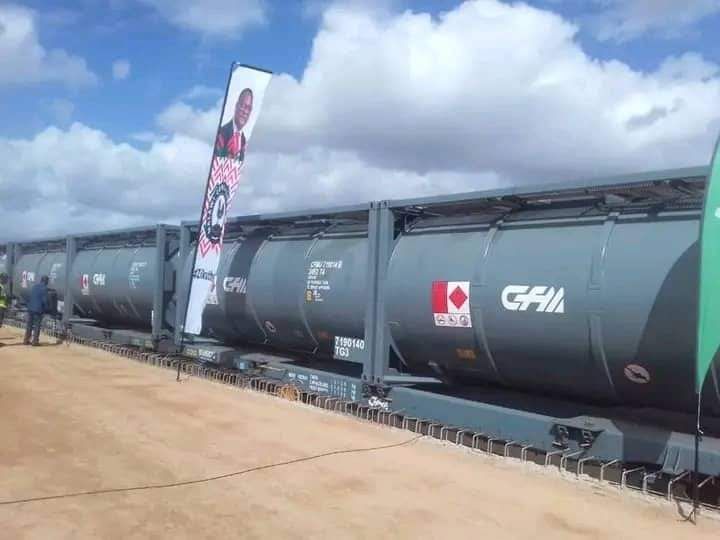By Burnett Munthali
The re-operationalisation of the Marka-Beira railway line, a crucial transportation link between Malawi and the Indian Ocean, has raised hopes of significantly reducing the time it takes to haul fuel into the country. This development is expected to have wide-reaching benefits for the landlocked nation, improving not only the fuel supply chain but also boosting economic growth and trade.
The Marka-Beira railway line connects Malawi to the port city of Beira in Mozambique, a vital gateway for the country’s imports and exports. The railway had been dormant for several years due to infrastructural damage and political instability in the region. However, its recent rehabilitation and reopening signal a strategic step towards enhancing Malawi’s transport infrastructure.

For a country that heavily relies on road transport to import essential goods like fuel, the re-operationalisation of the railway presents a faster, more efficient, and cost-effective alternative. Historically, fuel haulage into Malawi has been plagued by delays, which often contribute to fuel shortages and rising costs in the country.
With the railway back in operation, the time taken to import fuel from Beira to Malawi is expected to drop significantly. This is due to the railway’s ability to move large quantities of fuel in shorter periods compared to the traditional road haulage system, which is slower and susceptible to traffic congestion, bad road conditions, and border delays.
Energy experts anticipate that fuel transportation costs will also be lowered, as rail is generally cheaper than road transport for bulk goods. This reduction in cost could lead to lower fuel prices in the country, which would be a welcome relief for businesses and consumers alike, especially in an economy that has been grappling with rising fuel prices.
The reopening of the Marka-Beira railway line holds numerous benefits beyond fuel transportation. For Malawi, this railway connection to the Indian Ocean presents an opportunity to increase trade volumes, as the route provides quicker access to international markets. Agricultural exports, which form a significant part of Malawi’s economy, stand to benefit greatly from faster and more reliable transportation.
The railway is also expected to reduce the wear and tear on Malawi’s roads, which are often burdened by heavy truck traffic carrying fuel and other goods. By alleviating pressure on road infrastructure, the railway will allow for longer-lasting roads and reduced maintenance costs.
In addition, the improved fuel supply chain could spur development in Malawi’s industrial sector. Reliable and consistent fuel availability is critical for manufacturing, transport, and energy generation, all of which are key drivers of economic growth.
The re-operationalisation of the railway line is also a testament to improved regional cooperation between Malawi and Mozambique. The railway represents a vital part of the Southern African Development Community’s (SADC) regional infrastructure development agenda, which seeks to promote cross-border trade and regional integration.
Mozambique’s Beira Port is one of the most important transit points for several Southern African countries, including Zimbabwe, Zambia, and the Democratic Republic of Congo (DRC). The railway’s reopening enhances Beira’s capacity as a regional trade hub, further cementing its strategic importance.
The reopening of the Marka-Beira railway line has set high expectations for a faster and more efficient fuel haulage system in Malawi. This long-awaited development is not only expected to reduce fuel transportation time but also lower costs, enhance trade, and relieve pressure on the country’s road infrastructure. If properly managed, the re-operationalisation of the railway could be a game-changer for Malawi’s economy, providing a crucial link to international markets and fostering regional integration. As Malawi looks to capitalize on this development, the country’s economic future appears brighter with improved transport logistics now in place.


